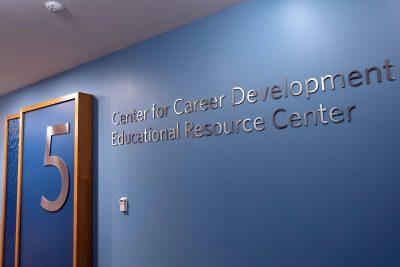With the sun warming Commonwealth Ave. into the spring season, student stress is rising with the temperature. Questions of internships versus jobs and passion versus practicality dominate the air, but not for long.

Olivia Hoffmann, Yawkey internship coordinator at Boston University, said students are more often asking how, when and where to find internships.
“This is a great time to be thinking about the summer,” Hoffmann said. “It’s not too late, I think that’s a big thing to focus on for students.”
Students often place too much stress on finding the perfect summer experience, Hoffmann said, but there is no guideline she knows of detailing what students should do each summer.
“Students worry that they don’t have experience or don’t know what the right experience is,” Hoffmann said. “Depending on what you’re looking for out of it, it doesn’t always necessarily need to be a formal internship opportunity.”
Passion and practicality don’t have to be mutually exclusive when it comes to choosing work experience, Hoffmann said. Especially with a short-term experience like an internship, she said it’s a great excuse to try something new, and possibly add a unique skill set to one’s future career.
“[Internships] are still really crucial exposure experiences,” Hoffmann said. “In terms of passion and career, we want them to overlap and [then]… articulating that in the future to employers about what a great experience that was.”
The third Internship Insights event of this academic year was held at BU’s Center for Career Development on Friday — an informal event that connects BU students with upperclassmen who have completed internships in a certain field. Friday’s event focused on media, arts and communications.
Gabriela Ferrari, a junior in the College of Fine Arts studying graphic design, said she hoped to offer advice to underclassmen at the CCD event. Two summers ago, Ferrari interned at CNN, and last summer, she said she prioritized location and free housing in her summer job choice, working at Summer Challenge, a summer program for high schoolers through BU.
Though Ferrari was not working in her field specifically last summer, she said gained many valuable, and applicable, tools she could carry with her into work.
“[Summer Challenge] was an interesting work experience that wasn’t necessarily related to my field,” Ferrari said, “but there were still a lot of skills like teamwork that [are] still very useful.”
Ferrari said the best advice she can give others about how to stand out in internships is to pursue what excites them, not what they feel like they have to do.
“Think about what makes you unique — out of everything in your resume what are you passionate about? And then try to bring that to the front,” Ferrari said. “If you want to stand out, the easiest way to do it is by actually talking about something you care about.”
Mengling Wu, a junior in the Sargent College of Health and Rehabilitation Sciences studying nutrition, said her internship the summer before her sophomore year at a clinical nutrition department in a hospital complemented her classes and expanded her knowledge of the field.
“I’m taking a medical nutrition service course right now and they’re focused on how nutrition, some nutritional therapy [helps] for the certain disease,” Wu said. “I think experiencing the internship really helped me to get a brief idea before taking this course.”
And yet, sometimes internships or jobs can seem out of reach for students.
Samantha Johnson, the assistant director of career education at the CCD, wrote in an email that students should not be discouraged if they do not fit every listed requirement on a job description. She wrote that the CCD advises students to advocate for their strengths in their resumes and cover letters, and to have confidence in their experience, even if it’s untraditional.
“I encourage students to think broadly about their experiences and skills,” Johnson wrote. “Employers are not interested solely in hearing about their internships and jobs; experience also includes relevant course projects, research, study abroad, community service, leadership, and student organizations.”
Networking, though it can make people uncomfortable, can start very simply, Johnson wrote.
“Start with people you already know and build comfort there first,” he wrote. “Networking can help you explore career options, build relationships with professionals in a field of interest, get feedback, advice, recommendations, and insight that can help you access your desired industry.”
Another important aspect to focus on in a job search, Hoffmann said, is accessing the resources and connections available to you and saying yes to opportunities.
“What can you be working on that will matter for multiple other industries and multiple other jobs?” Hoffmann said. “Although it’s a broad answer, just not being scared of taking advantage of whatever opportunity is in front of you and using [BU’s] resources.”














































































































